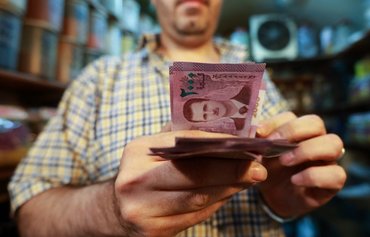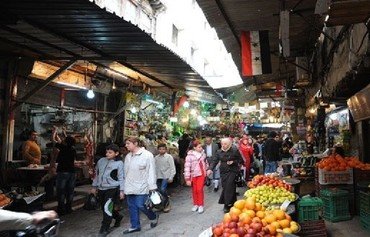The US on Tuesday (June 16th) warned Syrian President Bashar al-Assad that he will never secure a full victory and must reach a political compromise.
The warning, delivered a day before stinging new sanctions known as the Caesar Act take effect, came as Syria faces an intensifying economic crisis.
US ambassador to the UN Kelly Craft urged al-Assad to embrace Security Council Resolution 2254 of 2015 -- which called for a ceasefire, elections and political transition in Syria -- and talks under UN envoy Geir Pedersen.
If the Syrian regime fails to follow this political path, the US will have "no other choice but to continue withholding reconstruction funding and impose sanctions against the regime and its financial backers", she told the Security Council.
The US "will take decisive steps to prevent the al-Assad regime from securing a military victory", and to steer the regime and its allies back towards the UN-led political process, Craft said.
The Caesar Act seeks to prevent al-Assad's normalisation without accountability for human rights abuses. It penalises any company that deals with al-Assad and blocks US reconstruction assistance.
The law is named after a former Syrian military photographer who fled at great personal risk in 2014 with 55,000 images of brutality in Syrian regime prisons.
With Syrian and Russian forces mounting a major offensive in Idlib, a UN-backed constitutional review aimed at reaching a peaceful solution has made little progress.
Pedersen told the Security Council that he was willing to resume constitutional talks in Geneva in late August.
Central Bank devalues Syrian pound
As the new sanctions took effect on Wednesday, Syria's Central Bank devalued the Syrian pound, giving in to weeks of depreciation on the black market.
The Central Bank raised the official exchange rate from 704 to 1,256 Syrian pounds to the dollar, raising a rate that had been in force since March.
Earlier this month, Syria's currency hit a record low on the black market of around 3,000 pounds to the dollar, sparking rare protests in regime-held areas.
Before the conflict, the exchange rate stood at 47 Syrian pounds to the dollar.
On Wednesday, the rate on the parallel market stood at around 2,600 to 2,800 pounds to the dollar, traders said.
Zaki Mehchy, senior consulting fellow at Chatham House think tank, said the Central Bank was trying to minimise the gap between official and black market rates.
"It is trying to encourage people to use the official channel instead of the black market," he said, adding that the pound would probably continue its slide, punctuated by short periods of appreciation.
Syria's economy, battered by nine years of war, is reeling from the knock-on effects of a financial crisis in neighbouring Lebanon that has stemmed the flow of dollars into regime-held areas.
Analysts have said the recent lows on the black market are likely due to worries ahead of the introduction of new sanctions, and the fall from grace of tycoon and al-Assad cousin Rami Makhlouf, which has set other top businessmen on edge.

![This photo taken June 17th shows the facade of the Central Bank of Syria in Sabaa Bahrat Square, Damascus. [Louai Beshara/AFP]](/cnmi_di/images/2020/06/17/24605-Syria-central-bank-600_384.jpg)






